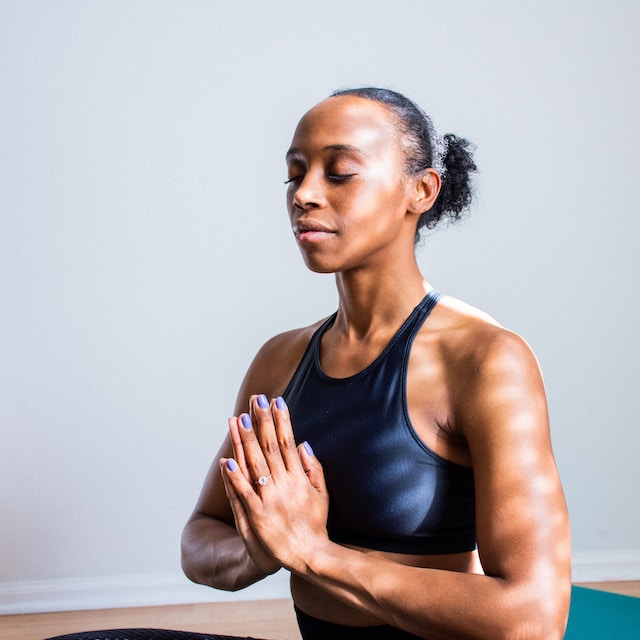
Meditation, at its essence, is a journey inward – a tranquil sojourn into the labyrinth of our consciousness. It is a delicate dance between serenity and focus, where one seeks to quiet the mind’s incessant chatter and discover the boundless expanse of inner stillness. This practice, embraced by practitioners of alternative medicine, sages and seekers throughout the ages, beckons us to delve deeper into the chambers of our being, to uncover the profound wisdom that lies dormant within.
In today’s relentlessly busy world, where technological advancements claim our every waking moment, meditation emerges as an indispensable tool for navigating the tumultuous waters of existence. It grants us temporary respite from the demands of our external world, inviting us to step away from the digital tempest and connect with our own breath, our own heartbeat.
The benefits of meditation are manifold, both for our mental well-being and our physical health. Studies have shown that regular meditation practices can reduce stress levels, lower blood pressure, and alleviate symptoms of anxiety and depression. Additionally, it cultivates mindfulness and self-awareness, helping us develop emotional intelligence and fostering a greater sense of empathy and compassion towards ourselves and others.
In this era of constant connectivity and sensory overload, meditation provides a much-needed refuge for our restless minds. It offers an opportunity to unplug from the digital realm, allowing our attention to rest on the simplicity of our breath and the gentle cadence of our thoughts. In this sacred space, we can cultivate presence, reclaiming our power to live in the moment and savor life’s fleeting joys.
Imagine a world where individuals carve out moments each day to sit in quiet contemplation, where the noise of the outside world is hushed, and the whispers of their inner wisdom soar. Such a world holds the promise of greater harmony, as individuals find solace within themselves and develop the resilience to face life’s challenges with grace and equanimity.
So, dear friend, amidst the cacophony of this modern age, may you find solace in the gentle embrace of meditation. May you embark on this inward pilgrimage, discovering the deep wellspring of peace that lies deep within your being. Embrace the stillness, for it is there that you will truly find yourself, and in finding yourself, you will find serenity amidst the chaos.
Various Meditation Techniques
Delving into the world of meditation unveils a vast array of techniques, each offering a unique pathway to inner peace and self-discovery. Whether you prefer to sit in silence, focus on your breath, or engage in guided visualizations, there is a meditation practice that will resonate with your soul. Explore the following meditation techniques and find the one that suits your individual journey.
Mindfulness Meditation
Mindfulness meditation involves bringing one’s attention to the present moment, observing thoughts and sensations without judgment.
Technique: Sit in a comfortable position, close your eyes, and focus on your breath. As thoughts arise, gently acknowledge them and return your attention to the breath. Expand your awareness to bodily sensations, sounds, and emotions.
Loving-Kindness Meditation
Loving-kindness meditation cultivates feelings of compassion and love, extending goodwill towards oneself and others.
Technique: Find a peaceful space and sit comfortably. Begin by focusing on loving yourself, repeating phrases like, “May I be happy, may I be healthy, may I live with ease.” Gradually extend these wishes to loved ones, acquaintances, and even those you may have difficulties with.
Transcendental Meditation
Transcendental meditation uses mantra repetition to quiet the mind and access deeper states of consciousness.
Technique: Close your eyes and sit comfortably. Choose a mantra that resonates with you and repeat it silently in your mind. Allow the mantra to become a focal point, gently guiding your awareness inward.

Guided Visualization
Guided visualization meditation involves using visual imagery to bring about a sense of relaxation and inner calm.
Technique: Find a quiet space and listen to a guided meditation recording or use your imagination to create a serene scene in your mind. Engage your senses and immerse yourself in the details, allowing stress to melt away.
Body Scan Meditation
Body scan meditation brings attention to each part of the body, fostering awareness and relaxation.
Technique: Lie down or sit comfortably, close your eyes, and bring your focus to your toes. Gradually move your attention up through each part of your body, noticing sensations without judgment. Scan from your toes to the top of your head, releasing tension as you go.
The Science Behind Meditation
In recent years, scientific research has validated what ancient wisdom has long proclaimed – that meditation holds the key to unlocking our full human potential. Through modern neuroscientific methods, researchers have delved into the intricate workings of the brain, shedding light on the profound effects of meditation on our physical and mental well-being. In this section, we will explore the scientific evidence behind meditation, understanding how it shapes our brain, enhances our cognitive abilities, and promotes overall health.
The Neuroplasticity of the Brain:
The human brain possesses a remarkable capacity for change and adaptation, known as neuroplasticity. Meditation has been shown to stimulate this neuroplasticity, rewiring neural pathways and promoting structural changes within the brain.
Neuroimaging studies have revealed that long-term meditators exhibit greater gray matter volume in brain regions associated with attention, emotion regulation, and self-awareness. This suggests that the practice can strengthen these areas and enhance cognitive functions.
Stress Reduction and the Relaxation Response:
Chronic stress can have detrimental effects on our physical and mental well-being. Meditation activates the body’s relaxation response, counteracting the physiological effects of stress and promoting a state of deep relaxation.
Research has demonstrated that regular meditative practices can reduce levels of stress hormones such as cortisol, lower blood pressure, and alleviate symptoms of anxiety and depression. This indicates that meditation exerts a calming influence on the body and mind, cultivating a sense of inner peace.
Enhanced Cognitive Abilities:
Meditation has been found to enhance various cognitive functions, such as attention, memory, and executive functions, which govern higher-order thinking and decision-making.
Studies have shown that mindfulness meditation improves attentional control and the ability to sustain focus, leading to enhanced cognitive performance. Additionally, it has been associated with improvements in working memory, creativity, and problem-solving skills.

Emotional Regulation and Well-being:
Emotional regulation refers to the ability to manage and regulate one’s emotions effectively. Meditation cultivates mindfulness and self-awareness, enhancing emotional intelligence and fostering well-being.
Research has indicated that meditative practices increase activity in brain regions associated with emotional regulation, such as the prefrontal cortex. This promotes emotional stability, decreases reactivity to negative stimuli, and increases positive affect.
Physical Health Benefits:
Beyond its impact on the mind, meditation has been shown to confer numerous physical health benefits, improving overall wellness and longevity.
Studies have linked the practice with reduced inflammation, strengthened immune function, and improved cardiovascular health. Regular meditation practices have also been associated with pain reduction and improved sleep quality.
The scientific evidence behind meditation is compelling, illustrating its profound impact on our physical and mental well-being. From reshaping the neural architecture of the brain to reducing stress and enhancing cognitive abilities, meditation offers a myriad of benefits that extend far beyond mere relaxation. As the scientific community continues to unravel the mysteries of the mind, meditation stands as a powerful tool in promoting holistic health and unlocking the full potential of the human experience.
